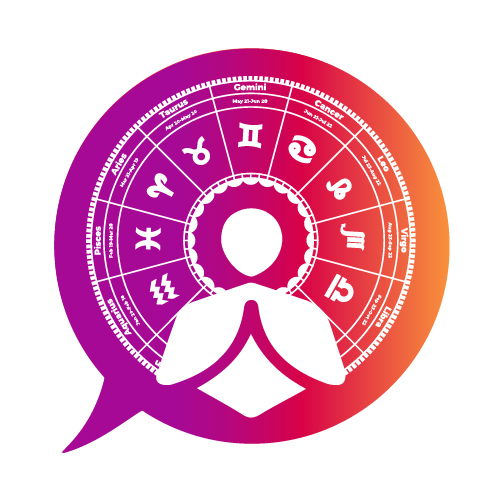Blogs

The Significance of Buddha Purnima in Vedic Astrology
The full moon day of the Hindu month of
Vaisakha, known as Buddha Purnima, is a significant event celebrated by
millions around the world. It marks the birth anniversary of Lord Buddha - one
of the greatest spiritual leaders to have ever lived. But did you know that
this auspicious day holds great significance in Vedic astrology as well? In
this blog post, we'll delve deep into the astrological significance and
powerful energies that surround Buddha Purnima and how they can impact your
life positively. So buckle up and get ready for an enlightening journey through
ancient wisdom!
Introduction
to Buddha Purnima
Buddha Purnima, also known as Vesak, is a
sacred religious festival celebrated by Buddhists all over the world. It marks
the birth, enlightenment and death of Siddharth Gautama Buddha, the founder of
Buddhism.
In Vedic astrology, Buddha Purnima is an
important event as it falls on the full moon day in the month of Vaisakha. This
full moon day is considered to be extremely auspicious for spiritual practices
and devotionals. It is said that on this day, Lord Buddha attained Nirvana
(liberation from the cycle of birth and death).
It is believed that performing religious
rituals and prayers on this day will purify one’s mind and lead to salvation.
Devotees also take vowes (Sanskrit: Sankalpa) for the well-being of all
sentient beings on this day. Hence, it is also known as ‘Sanghanivarana
Mahotsava’ or ‘Pancha Mahayana Parva’ which means ‘festival of five great
events’ in Buddhism.
Origin
and historical relevance of Buddha Purnima in Vedic Astrology
Today, on the occasion of Buddha Purnima, let
us take a look at the origin and historical relevance of this significant day
in Vedic astrology.
Buddha Purnima, also known as Vesak, is
celebrated as the birth, enlightenment and death anniversary of Gautama Buddha.
It falls on the full moon day in the month of Vaisakha (April-May) according to
the lunisolar Buddhist calendar.
The day is observed with great fervour in
countries like India, Sri Lanka, Nepal, Tibet, Bangladesh, China and Thailand.
Devotees engage in various religious activities such as fasting, pilgrimages,
Offerings and reciting prayers and mantras dedicated to Lord Buddha. Temples
are decorated with lights and flowers and special pujas are performed.
In Vedic astrology too, Buddha Purnima holds
great significance. The day is considered to be highly auspicious for
performing spiritual practices like meditation and yoga. It is believed that
any practice done on this day will yield manifold results.
Buddha Purnima also marks the beginning of a
new year in many parts of India. This is because the day heralds the arrival of
Vaisakha Shukla Paksha which is considered highly auspicious for starting new ventures.
Many people use this day to begin their journey towards spiritual
enlightenment.
So go ahead and make use of this auspicious
day to its fullest! May Lord
Relationship
between Buddhism and Vedic Astrology
There is a close relationship between Buddhism
and Vedic astrology. Both systems of thought share a common goal: the
liberation of the human soul from the cycle of rebirth. And both systems place
great importance on the role of karma in determining one's destiny.
Buddhism teaches that it is possible to break
free from the cycle of rebirth by following the path of Dharma, which includes
right speech, right action, and right thought. Similarly, Vedic astrology
teaches that it is possible to achieve liberation from the cycle of rebirth by
following the path of Dharma, which includes using one's astrological knowledge
for the good of all. The Buddha was born under the sign of Taurus, which is
ruled by Venus. Venus is the planet of love, beauty, and pleasure. The Buddha's
teachings are based on love and compassion for all sentient beings. In Vedic
astrology, Taurus is considered to be a yoga-karaka planet, which means that it
has the power to bestow Yoga, or spiritual union with the divine. Buddha
Purnima is an auspicious day for Buddhists all over the world because it
commemorates the day when Gautama Buddha attained enlightenment under the Bodhi
tree. In Vedic astrology, this date falls on Vikram Samvat 2096, which
corresponds to April 28th in the Gregorian calendar. This year, Buddha Purnima
falls on a Tuesday, which is ruled
Various
interpretations of Buddha Purnima in different parts of India
Buddha Purnima, also known as Vesak, is a
Buddhist festival that marks the birth, enlightenment, and death of Gautama
Buddha. The holiday is observed on the full moon day in the month of May. In
India, the festival is celebrated in a variety of ways depending on the region.
In Theravada Buddhist regions such as Sri Lanka, Nepal, and Thailand, Vesak is
typically marked with processions, candlelight vigils, and special sermons. In
Mahayana Buddhist regions such as China, Hong Kong, Japan, South Korea, and
Taiwan, the day is often spent decorating temples and public spaces with
lanterns. Some Hindus also celebrate Buddha Purnima as Vaishakha Puja to honour
the god Vishnu. This tradition began after Emperor Ashoka converted to Buddhism
and helped spread the religion throughout India. Today, Vaishakha Puja
celebrations often include prayers, fasting, and giving offerings to monks. No
matter how it is celebrated, Buddha Purnima is an important day for Buddhists
around the world to reflect on the life and teachings of Gautama Buddha.
Relevance
of festivity in modern times
Buddha Purnima, also known as the Buddha's
Birthday, is celebrated on the full moon in May in many East Asian countries.
The holiday commemorates the birth, enlightenment and death of Gautama Buddha.
In modern times, the relevance of Buddha
Purnima has diminished somewhat. However, there are still those who celebrate
the holiday and its meaning. For them, Buddha Purnima is a time to reflect on
the life and teachings of Gautama Buddha. It is also a time to celebrate his
birthday and remember his enlightened state.
Rituals
associated with the festival and their scientific significance
Buddha Purnima, also known as Vesak, is a
Buddhist festival that celebrates the birth, enlightenment, and death of the
Buddha. The festival is observed on the full moon day in the month of May. It
is a public holiday in many countries, including India.
Buddhist rituals associated with this festival
include lighting lamps and candles, reciting prayers and chanting mantras. One
of the most significant rituals is taking a vow to follow the middle path or
"Dhamma", as it is known in Buddhism. This path includes leading a
life of moral rectitude, renouncing violence, and observing Precepts such as
not stealing, lying, or taking intoxicants.
The scientific significance of these rituals
lies in their ability to calm the mind and promote inner peace. When we take a
vow to follow the Dhamma, we are making a commitment to ourselves to live in
harmony with our own values and beliefs. This leads to a sense of contentment
and peace within ourselves which can be beneficial for both our mental and
physical health.
Role
of Jupiter transits, Moon phases and other celestial bodies on the occasion
In Vedic astrology, the planet Jupiter is
known as the "guru" or teacher, and its transits are considered to be
important for guidance and growth. The full moon is also said to be a time when
we can benefit from the guru's energy, and so Buddha Purnima, which falls on
the full moon in the month of Vaisakha, is considered to be an auspicious time
for spiritual practice. Other planets and stars are also said to influence our
life events, and so their positions at the time of Buddha Purnima can give us
clues as to what kind of blessings or challenges we may experience.
Conclusion
Buddha Purnima is an important festival
celebrated by Hindus and Buddhists alike as a way to commemorate the life of
Gautama Buddha, the founder of Buddhism. In Vedic Astrology, it holds great
significance as it marks the beginning of a new zodiac cycle which brings with
it various changes in one's life. While following all safety measures during
this special time, we should strive towards achieving peace and wisdom by
becoming more mindful and understanding of our actions so that we can live in
harmony with each other just like the teachings of Lord Buddha.




 By -
Shivam & Siddharth
By -
Shivam & Siddharth 0
comments
0
comments Tag
Tag (1).jpeg)
 2024-09-29 16:35:16
2024-09-29 16:35:16 (1).jpg)













